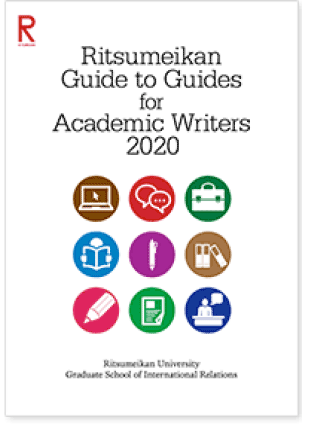How you decide courses to take
Sample Course Plans
Student A was interested in: The impact of cultural and economic factors on conflict resolution in Africa
Thinking that the role of international politics is crucial in conflict resolution in Africa, ‘A’ mainly took courses related to the theories of International Politics and conflict resolution in the Global Governance cluster, while taking other courses such as Race and Ethnicity, or International Economics from the other clusters to develop a comprehensive analytical angle.
| 1st semester | 2nd semester | 3rd semester | 4th semester |
|---|---|---|---|
| Advanced Seminar | Advanced Seminar | Advanced Seminar | Advanced Seminar |
| Theories of International Relations | Conflict resolution and Peace building | International Organizations | Local and Regional Development |
| African Studies | International Security | Non-Traditional Security | |
| Professional Training; International Cooperation |
Quantitative Research Methodology | International Political Economy | |
| Academic Writing(E) I | Academic Writing(E) II | Race and Ethnicity |
Student B was interested in: Bilateral diplomacy with renewable energy
With an ambition to become a professional practitioner of renewable energy diplomacy, along with Japanese and statistics courses, ‘B’ mainly took courses dealing with the environment along with economics-related courses from the Sustainable Development cluster; this prepared her to be ready for work in the field.
| 1st semester | 2nd semester | 3rd semester | 4th semester |
|---|---|---|---|
| Advanced Seminar | Advanced Seminar | Advanced Seminar | Advanced Seminar |
| Introduction to Microeconomics | Introduction to Macroeconomics | International Economics | |
| Development Economics | Environmental Policy | Policy Evaluation | |
| Public Diplomacy | Quantitative Research Methodology | Professional Training; International Cooperation |
|
| Research Training | Academic Writing(E) II | East Asian Studies | |
| Academic Writing(E) I |
Student C was interested in: Middle Eastern migrants in Europe
Concerned with the effect of media on the issue of migration, ‘C’ took courses in the Culture, Society and Media cluster. In order to develop a methodological framework for understanding the issue in a multi-dimensional way, he took European Studies, Middle Eastern Studies and International Politics.
| 1st semester | 2nd semester | 3rd semester | 4th semester |
|---|---|---|---|
| Advanced Seminar | Advanced Seminar | Advanced Seminar | Advanced Seminar |
| Cultural Theories | Global Sociology | International Human Rights | Globalization and Gender Issues |
| Politics in Developing Countries | Media Studies | Globalization of religion | |
| Migration Studies | Qualitative Research Methodology | Race and Ethnicity | |
| Middle Eastern studies | European Studies | Research Training |
Schedule for Two-Year Master’s Program in International Relations
Use the below horizontal scroll bar to view all the schedule.

Support for Individual Research (Master’s thesis)

Students receive comments and feedback from professors at the regular presentations prior to the submission of their Master’s thesis. Student questionaires show a high degree of satisfaction with our guidance.
Degree Requirements
Students must be enrolled for two or more years and earn the necessary credits listed below. In addition, students must submit a Master's thesis and pass an oral defense.
Coursework requires students to take necessary credits from Core Course, Advanced Course, Advanced Seminar and Area Studies.
To successfully complete the program, a student needs to earn 30 credits in total, which should at least have 4 credits from Core Course, 12 credits from Advanced Course, 2 credits from Area Studies, and 4 credits from Advanced Seminar.
| Coursework | Number of credits required |
|---|---|
| Core Course | 4 |
| Advanced Course | 12 |
| Advanced Seminar | 4 |
| Area Studies | 2 |
| Total | 30 |
Ritsumeikan Guide to Guides for Academic Writers
The electronic version of the "Ritsumeikan Guide to Guides for Academic Writers" is available online for your reference.

